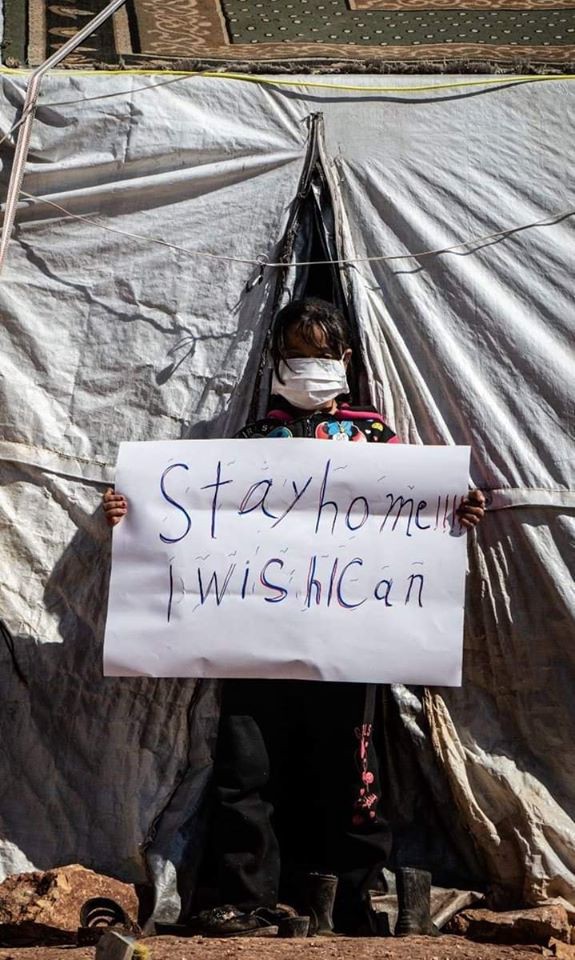Below we publish a roundup of race and civil liberties issues related to coronavirus in the UK and Europe. See our regular calendar of racism and resistance here.
INTERNATIONAL
31 March: The UN warns that the lack of capacity to deal with the consequences of a pandemic and a global recession would be catastrophic for many developing countries and calls for a $2.5tn emergency package to help developing countries cope with the impact of Covid-19. (Guardian, 31 March 2020)
6 April: 165 global leaders join academics and civil society representatives to call on the G20 to approve an immediate $8bn package of emergency health funding to bolster health systems in Africa and Latin America, and a longer-term package worth $44bn to Africa, as part of a $500-$600bn boost to international institutions to meet demands for help. (Guardian, 6 April 2020)
ASYLUM AND MIGRATION
Asylum and migration rights
28 March: The Portuguese government announces that all migrants and asylum seekers currently living in the country will be treated as permanent residents during the coronavirus crisis, ensuring that an estimated 135,000 people – the majority Brazilians – will have access to life-saving public services. (Independent, 28 March 2020)
 30 March: The director of the Department of Social Cohesion and the Protection of the Population in Ardennes, France, tells staff he will request the cancellation of any asylum application and/or the removal of refugee status from anyone found violating the Covid-19 confinement rules. (Letter from Departmentale de la cohesion sociale et de la protection des populations, 3 April 2020)
30 March: The director of the Department of Social Cohesion and the Protection of the Population in Ardennes, France, tells staff he will request the cancellation of any asylum application and/or the removal of refugee status from anyone found violating the Covid-19 confinement rules. (Letter from Departmentale de la cohesion sociale et de la protection des populations, 3 April 2020)
31 March: Home secretary Priti Patel announces that the visas of around 2,800 medical staff from overseas whose visas expire before 1 October will automatically have a free year-long visa extension to allow them to ‘focus on fighting coronavirus’. The extension will also apply to family members to give frontline workers ‘peace of mind’, the Home Office says. (Independent, 31 March 2020)
4 April: Barcelona’s municipal board of immigration asks the Spanish government to regularise the status of migrants in order to tackle the coronavirus crisis, citing the increased vulnerability of the migrant population during the state of emergency. (eldiario.es, 4 April 2020)
7 April: A cross-party group of more than 60 MPs calls on the Home Office to give indefinite leave to remain to foreign nationals working in the NHS and their families. They argue that the free-of-charge one-year visa extension for those in the NHS whose visas expire before 1 October does not go far enough. (Guardian, 7 April 2020)
Reception and detention
27 March: Thousands of doctors sign an open letter to the EU warning of a pending medical disaster in the Greek refugee camps; they point out that having 40,000 people living on a few square kilometres with only a few doctors is a recipe for the pandemic overwhelming the camps with catastrophic consequences. (EU Observer, 27 March 2020)
29 March: French authorities prepare to clear makeshift refugee camps in Calais and Dunkirk in a matter of days, displacing 2,100 refugees and transferring some to accommodation centres. Many of the refugees say they will attempt to reach the UK. Conditions in the camps have worsened as NGOs have pulled out because of the pandemic. (Guardian, 29 March 2020)
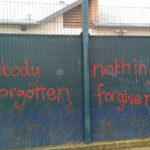
1 April: The charity Women for Refugee Women accuses the Home Office of negligence for continuing to send new detainees to Yarl’s Wood detention centre despite a confirmed case of coronavirus, as detainees, some of whom have underlying health conditions, report poor sanitation, a lack of protective equipment, having to share rooms and no social distancing in communal areas. (BBC News, 1 April 2020)
1 April: The Danish government confirms that it will continue to detain those asylum seekers currently in detention, despite the suspension of deportations owing to Covid-19. (Are you Syrious, Nyheder, 1 April 2020)
2 April: A leaked letter from Home Office contractor G4S reveals that vulnerable immigration detainees who are at risk of dying if they contract Covid-19 are to be placed in solitary confinement for at least three months. Bella Sankey, director of Detention Action, describes detention as ‘a double and discriminatory punishment which is unjustified at the best of times and in the worst of times it’s a brewing public health disaster.’ (Guardian, 2 April 2020)
2 April: As the Ritsona camp, near Athens, is quarantined for two weeks after 21 of its residents, the first being a mother who gave birth in an Athens hospital, test positive for the coronavirus, the EU home affairs commissioner announces an emergency response action plan to evacuate the most vulnerable people out of the camps to hotels and relocate unaccompanied minors to member states. (Deutsche Welle, 2 April 2020)
4 April: The UN warns that an outbreak of coronavirus in Libya would be ‘truly catastrophic’ for internally displaced people and the 700,000 refugees and migrants in the country. (Al Jazeera, 4 April 2020)
5 April: The Malakasa camp, which is north of Athens and hosts 1,800 migrants, is placed in ‘full sanitary isolation’ for two weeks, the second camp to be quarantined, after a 53-year-old Afghan man tested positive for the virus. (Deutsche Welle, 5 April 2020)
6 April: Refugees in the Halberstadt reception centre, Saxony-Anhalt, where 26 residents have tested positive, go on hunger strike in protest at the lack of hygiene and sanitary facilities for the 800 residents, demanding the redistribution of families and of older, pregnant or sick residents, and of anyone not so far infected. (Neues Deutschland, 7 April 2020)
Borders and internal controls
30 March: A boat holding 175 Syrians, including 69 children, spends its tenth day stranded at sea after Cypriot police refuse it landing, citing Covid-19 border closures. (Al Jazeera, 30 March 2020)
31 March: The Home Office implements immediate temporary changes to the hostile environment Right to Rent and work checks, allowing landlords and employers to check the immigration status of prospective tenants and job applicants through scanned documents and video calls rather than in person. The requirement to carry out the checks remains in place. (Scottish Housing News, 31 March 2020)
2 April: The Austrian interior ministry issues a decree that allows for the rejection of applicants for international protection at the border if they do not provide a medical certificate. (Vienna.at, 2 April 2020)
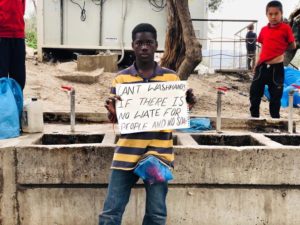
2 April: An analysis by Privacy International of the European Commission’s proposal to amend its 2020 budget to help Greece tackle the Covid-19 pandemic reveals that the proposed funding will not enhance migrants’ safety and access to healthcare but will enhance control and surveillance over them, with the lion’s share going to the establishment of five ‘reception and identification’ centres. (Privacy International, 2 April 2020)
7 April: The Maltese and Italian governments refuse landing to the 150 people rescued by the Alan Kurdi, citing Covid-19, and the German Federal Foreign Ministry tells NGO Sea Eye, which operates the ship, to stop further rescues and recall its rescue ships. Sea Eye calls on the ministry to send an aircraft to take the refugees, pointing out that 200,000 Germans have been repatriated in the past few days. (Malta Today, 7 April 2020)
EMPLOYMENT AND EXPLOITATON
25 March: The collective of immigrant street workers of Bilbao create an emergency fund to address economic losses caused by coronavirus, and are calling for donations so they can support themselves and their families in their countries of origin. (eldiario.es, 25 March 2020)
28 March: Farming organisations and labour providers call on the government to organise charter flights to bring in agricultural workers from eastern Europe and further afield to help fill 90,000 crop picking jobs. (Guardian, 28 March 2020)
29 March: Economics thinktank Autonomy finds that low-paid women are at high risk of exposure to coronavirus, as they are more likely to be in jobs such as nursing and social care. (Guardian, 29 March 2020)
30 March: Workers at online fashion retailer Asos say they are scared to go to the company’s Barnsley warehouse, employing 4,000 people, which they describe as a ‘cradle of disease’. The GMB trade union calls on Asos to close the warehouse. (Guardian, 30 March 2020)
31 March: Union leader Dave Prentiss says public sector workers lack personal protective equipment and ‘feel like they’ve been forgot – their safety a mere afterthought, despite the critical work they do’, as care home staff they are being treated as ‘cannon fodder’ and are at breaking point. (Guardian, 31 March 2020)
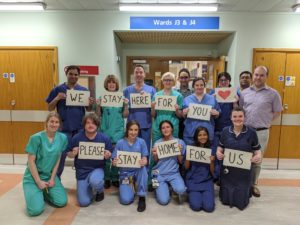 31 March: NHS staff say they have been warned not to raise concerns publicly about the widespread shortage of personal protective equipment, with the president of Doctors’ Association saying some have had careers threatened and at least two doctors sent home for speaking out. (Guardian, 31 March 2020)
31 March: NHS staff say they have been warned not to raise concerns publicly about the widespread shortage of personal protective equipment, with the president of Doctors’ Association saying some have had careers threatened and at least two doctors sent home for speaking out. (Guardian, 31 March 2020)
31 March: Sudden nursery closures leave frontline NHS staff with young children having to reduce their working hours or care for them between shifts, as nursery workers say they have no protection for their own health in the crisis. (Guardian, 31 March 2020)
1 April: At the end of the week in which four BAME doctors died – GP Dr Habib Zaidi, 76, Adil El Tayar, 64, Amged El-Hawrani, 55, and Dr Alfa Saadu, 68 – the first doctors to die of coronavirus – It is revealed that only 2,000 of the half-million NHS staff exposed to the virus have been tested. (Guardian, 1 April 2020)
5 April: Thousands of casual and zero-hours contract workers, including cleaners, catering and security staff, at Premier League football stadiums have been left unpaid since the season was halted, the Guardian reports. (Guardian, 5 April 2020)
6 April: As a number of care workers are revealed to have died looking after elderly residents in care homes, many of whom have died, Nadra Ahmed of the National Care Association reports a desperate shortage of protective equipment, with staff resorting to Marigolds and bin liners. The Women’s Resource Centre points out that care workers are disproportionately women and BAME. (Independent, 24 March, Guardian, 6 April 2020)
6 April: As tributes are paid to nine bus workers who have died of coronavirus, eight in London and at least five of whom are BAME, colleagues call for stronger protective measures. Many buses have no hygiene measures in place and drivers are ‘scared to death’ of catching coronavirus, the union Unite reports. Guardian, 5, 6 April 2020)
POLICING, CRIMINAL JUSTICE AND CIVIL LIBERTIES
For more information on policing and civil liberties issues follow @NETPOL @BigBrotherWatch @Covid19StateWatch and@libertyhq.
26 March: Prisoners’ organisations and charities call for a programme of early release of prisoners, as relatives of those with health problems fear they may die from Covid-19. There are 83,000 inmates across England and Wales, not including children held in Youth Offender Institutions. (Guardian, 26 March 2020)
26 March: The Crown Prosecution Service says that anyone caught making threats of Covid-19 infection will face serious criminal charges punishable by up to two years in prison, after reports of police officers, shop workers and vulnerable people being deliberately coughed at by people claiming to have the disease. (Guardian, 26 March 2020)
28 March: Prisoners approaching the end of their sentences in Scotland could be released early, as Scotland’s justice secretary Humza Yousaf actively considers moves to prevent an ‘increasingly alarming’ coronavirus crisis in the country’s overcrowded jails. (Guardian, 28 March 2020)
29 March: Justice secretary Robert Buckland comes under pressure from the Children’s Commissioner, the Howard League and other penal and children’s charities to release young offenders who have health problems or are at risk of self-harm, as the Covid-19 crisis means no visits, staff shortages and more time locked in cells alone. (Independent, 29 March 2020)
30 March: The health council of Santoña, Spain, orders the forcible confinement in their homes of 21 families, mostly Gypsies, to prevent the spread of Covid-19, at the Socialist mayor’s request. Five of the six deaths in the region have been of Gypsies, who are only 6 per cent of the population but account for 60 per cent of infections, and they face increasing racism. (eldiario.es, 30 March, El Mundo, 31 March 2020)
31 March: UK prisoners with conventional flu symptoms are being placed in the same cells as those who have tested positive for Covid-19, in breach of World Health Organisation guidelines, the Guardian reports. (Guardian, 31 March 2020)
31 March: A video obtained by the Evening Standard shows police forcefully entering a home of an alleged criminal, after it was revealed the Metropolitan Police have arrested more than 650 suspects in one week. Taking advantage of Covid-19 lockdown conditions, the Met has targeted robbers, knife carriers and drug dealers using a range of powers, including stop and search, weapon sweeps and knife arches in London’s hotspots, as well as home raids. (Evening Standard, 31 March 2020)
1 April: Police racial violence is surging in Spain during the state of emergency, anti-racist and social groups report. SOS Racismo says the number of complaints of racist policing is rising every day and that police are acting with greater impunity. (Público, 1 April 2020)
2 April: Two separate groups of refugees in Chios, Greece are fined €5,000 for violating social distancing measures by holding children’s birthday parties, a week after the Greek government suspended the monthly allowance for asylum seekers. (Ekathimerini, 2 April 2020)
2 April: One hundred civil liberties organisations worldwide warn of the dangers of sleepwalking into permanent surveillance in the coronavirus pandemic’s aftermath. They call for limits in time and scope of digital surveillance used to curb the virus, as hasty initiatives to access mobile phones to trace population interactions and infected persons ‘threaten privacy, freedom of expression and freedom of association’. (Deutsche Welle, 2 April 2020)
3 April: The National Crime Agency (NCA) warns there could be a rise in online child sexual abuse offences during the Covid-19 epidemic as it reveals its most recent intelligence shows there are at least 300,000 people in the UK who pose a sexual threat to children, online and offline. (Guardian, 3 April 2020)
3 April: Seventy riot police storm Drama migrant detention centre in Greece, beating detainees with batons and tasering them, after detainees started a hunger strike over the lack of edible food. Five people are badly injured and one is taken to hospital in a critical condition. (Are You Syrious, 6 April 2020)
4 April: The government announces that up to 4,000 ‘low-risk’ prisoners are to be temporarily released on licence with electronic tags, to slow infection, as to date, eighty-eight prisoners and fifteen staff have already tested positive for Covid-19, and at least three prisoners and two prison staff have died. (Observer, 4 April 2020)
3 April: The Times reveals that Marie Dinou, a 41-year-old BAME woman who was the first person to be prosecuted and fined under the Coronavirus Act for ‘loitering’ at Newcastle central station, was wrongly charged and is to have her conviction quashed. (Times £, 3 April 2020)
4 April: A homeless man in Crete is fined €150 for not staying at a home he does not have. Police officers in Thessaloniki have also fined six homeless people. So far Greece has imposed fines worth €4,253,700 for lockdown violations. (Keep Talking Greece, 4 April 2020)
ELECTORAL POLITICS
25 March: In a debate in Congress, the Spanish far-right party Vox proposes the removal of free healthcare for undocumented migrants and extending the length of detention for illegal immigrants, during the Covid-19 crisis. (Público, 25 March 2020)
29 March: After Michael Gove and other senior government sources appear to blame China for the scale of the coronavirus infection, Labour deputy leadership candidate Richard Burgon says this represents a ‘Trump-style’ ploy to distract from government failures. (Guardian, 29 March 2020)
28 March: As Bulgarian politician Angel Dzhambazki (VMRO) calls for the closure of ‘the ghettos’ everywhere, asking ‘what if the ghettos turn out to be the real nests of contagion’, the interior ministry announces it is considering tougher measures for Roma communities flouting social distancing rules. Authorities in Sliven set up police checkpoints around the Roma neighbourhood, where for many the only means of livelihood is collecting bottles from garbage cans. (Reuters, 28 March 2020)
3 April: After European MEPs describe as incompatible with membership of the EU an emergency law to tackle coronavirus that gives Hungarian prime minister Viktor Orbán unlimited power to rule by decree and introduces jail terms for spreading ‘false information’, Orbán accuses a network led by the Hungarian-American philanthropist financier George Soros of being behind attacks on the law via supposed proxies in Brussels. (Guardian, 31 March, 2, 3 April 2020)
ANTI-FASCISM AND THE FAR RIGHT
26 March: The Feuerkrieg Division, active in the US and Europe, calls on supporters who catch Covid-19 to deliberately infect Jews, while German neo-nazi group Der Dritte Weg (The Third Way), claims that leaders are exploiting the virus as a ‘diversionary tactic to distract from a ‘flood’ refugees and migrants from the Middle East. (Al Jazeera, 26 March 2020)
5 April: Far-right groups are blaming Muslims for spreading the virus, says Tell Mama, with Tommy Robinson and Britain First putting a fake video online, purporting to show Muslims attending a ‘secret mosque’ in inner Birmingham. A video showing Muslims attending Friday prayers was taken before lockdown was announced, say West Yorkshire police. (Guardian, 5 April 2020)
EDUCATION
30 March: The educational charity BLAM, which specialises in Black Learning Achievement and Mental Health, says it is providing free weekly interactive worksheets to parents during the Covid-19 crisis. Founder of BLAM Ife Thompson says, ‘Given the lack of school resources available to parents at present, it’s important for us to make the process as accessible as possible for all young people in the UK. Money or a lack of it should not be a barrier to learning.’ (Independent, 30 March 2020)
6 April: The Good Law Project says it will sue local authorities in order to push the government into providing pupils from poor backgrounds with computers and internet connections during the coronavirus lockdown. It is against the law to deprive children of their education and poorer pupils are educationally disadvantaged due to a lack of access to tablets, laptops or adequate broadband, says the group. (Guardian, 6 April 2020)
6 April: School closures are likely to have a relatively small impact on the spread of Covid-19 and should be weighed against their profound economic and social consequences, particularly for the most vulnerable children, according to a study from University College London (UCL), the first to look at evidence behind many governments’ decision to shut schools and keep pupils at home. (Guardian, 6 April 2020)
DISCRIMINATION
25 March: The Chinese community of the Balearic Islands, Spain, report a rise in racist incidents, citing racism in schools and a significant loss of clientele, as a result of the Covid-19 crisis. (El Mundo, 25 March 2020)
27 March : The European Roma Rights Centre warns that the EU’s crisis response to Covid-19 (€37 billion from EU structural funds) must not exclude the Roma, and urges it to instruct member states not to neglect and discriminate against Roma communities and other racialised minorities. (ERRC press release, 27 March 2020)
HOUSING
25 March: Labour’s shadow housing minister observes that landlords appear to be evicting tenants at record rates despite the government’s promise that no one will lose their home because of coronavirus, and calls for an urgent package of support including a six-month ban on evictions, rent suspension and housing benefit support. (Guardian, 25 March 2020)
27 March: At the urging of refugee rights groups and charities, the Home Office pauses all evictions of asylum seekers for three months, including those whose claim or appeal has been rejected, as part of efforts to halt the spread of coronavirus. The British Red Cross says 50,000 will be spared the threat of homelessness for the time being. But campaigners say it is too late for many refugees who have been evicted following the grant of refugee status and are now homeless and destitute. (Guardian, 28 March, Independent, 2 April 2020)
29 March: The Andalusian Social Water Board calls for an emergency water intake for migrant slums in Lepe, Andalusia, as it reveals that 5,000 people remain in unsanitary conditions without access to drinking water. (eldiario.es, 29 March 2020)
30 March: With the coronavirus pandemic causing destitution in Spain’s Latin American community through unemployment, lack of governmental assistance and the inability to return to their respective countries because of low funds and the closing of borders, Madrid hotel La Ciguëña opens its doors to Venezuelan refugees. (eldiaro.es, El Mundo, 30 March 2020)
30 March: Three days after the government asks local authorities to find housing for those in night shelters, hostels and on the streets to avert the spread of Covid-19, housing charities say thousands of rough sleepers in England remain unhoused. (Guardian, 27 March, 30 March 2020)
31 March: As day centres, food banks and soup kitchens close across Europe, homeless people in many European cities are going hungry, with some fined for being on the street, the Guardian reports. (Guardian, 31 March 2020)
3 April: Two empty hotels with a combined capacity of 220 are commandeered by Brussels regional authorities to house displaced people during the Covid-19 pandemic. The regional government says it made the decision for the ‘sake of public health’. (Brussels Times, 3 April 2020)
5 April: Roma rights groups across Europe warn that the pandemic is a looming humanitarian disaster for millions of Roma in central and south-eastern Europe, most of whom work in the informal economy and live in cramped conditions without access to health care and basic sanitation. Slovakia, Romania and Bulgaria have all introduced additional quarantine restrictions for the Roma, with Slovakia announcing mass Covid-19 testing in 33 Roma settlements, to be carried out by military doctors accompanied by soldiers. (Deutsche Welle, 5 April 2020)
6 April: Two weeks after over 700 people living in a makeshift camp in the Paris suburb of Aubervilliers were housed in empty hotels and sports halls, hundreds more asylum seekers and displaced people are still sleeping rough in Paris despite the Covid-19 lockdown measures. NGOs are providing what support they can. (France 24, 6 April 2020)
6 April: After two homeless migrants in Calais test positive for Covid-19, the prefecture announces that 400 places in sports halls and tourism complexes in Calais and Grand-Synthe are available to house migrants on a voluntary basis, for public health reasons, but that compulsory measures might become necessary. (InfoMigrants, 6 April 2020)
HEALTH AND WELFARE
31 March: The children’s commissioner for England calls for an army of furloughed and retired social workers and a range of school, nursery and care staff to help support children’s social care during the coronavirus crisis in an effort to stop the most vulnerable falling through the gaps and disappearing from view. (Guardian, 31 March 2020)
1 April: It is reported that over a two-week period, despite the support offered to employed and self-employed workers unable to work, nearly a million people have successfully applied for universal credit, ten times the normal rate, revealing the depth of the jobs crisis caused by the coronavirus pandemic and lockdown. (Guardian, 1 April 2020)
4 April: More than twenty-five organisations helping domestic violence victims report an increase in their caseload since the start of the UK’s coronavirus epidemic. (Guardian, 4 April 2020)
5 April: Mayors and city leaders from Bristol, Birmingham and Leeds call on central government to reverse its decision not to fund free meals for poor children in the Easter holidays, saying councils cannot afford it and children will go hungry. (Guardian, 5 April 2020)
6 April: Police report to MPs early signs of an increase in suicides and attempted suicides during the lockdown, which they say they are less able to prevent, with a 13 percent absentee rate owing to sickness or the need to self-isolate. (Guardian, 6 April 2020)
7 April: A UK study by the Intensive Care National Audit and Research Centre shows that BAME people are more likely to be badly affected by the coronavirus, comprising 35 percent of critically ill patients, nearly triple their proportion in the population. Possible explanatory factors include disproportionate numbers living in deprived areas in cramped accommodation, and being disproportionately represented in the NHS and public transport work. (Guardian, 7 April 2020)
MEDIA AND CULTURE
29 March: After the Mail on Sunday speculates on whether the EU negotiator Michael Barnier brought to Downing Street the virus that infected Boris Johnson (‘could this be the ultimate revenge for Brexit’, it asks), people take to social media to ridicule the newspaper, with Frédéric Moreau asking ‘Did this newspaper infect the UK?’ (New European, 29 March 2020).
VIOLENCE AND HARASSMENT
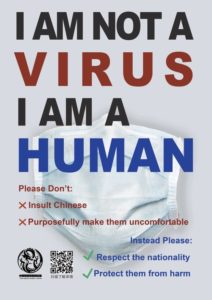
1 April: A Chinese woman from Chesterfield reports two incidents of racist abuse since the Covid-19 lockdown was put in place, including an occasion where two young men approached her on bikes and one coughed in her face. (Derbyshire Times, 1 April 2020)
2 April: Two police officers are spat at and racially abused after breaking up a house party in Gloucester, when they attended the location and found a group of six people breaching social distancing rules. A 41-year-old man was arrested on suspicion of being drunk and disorderly, assaulting a police officer and racially aggravated public order against a police officer. (Stroud News, 3 April 2020)
2 April: Racist posters are found in Hesketh Park blaming immigrants for the spread of coronavirus. Posters attributed to a white supremacist group known for far-right propaganda across the USA and Europe, which have not been named. Posters from the same group have been put up in various public places across the country in locations including St Helens, York, Sunderland and Hull. (Liverpool Echo, 2 April 2020)
3 April: A 35-year-old man is jailed for racially abusing a staff member at the council offices in Bristol on 20 March. After being told the building was on lockdown he abused a member of staff, who he mistook to be Chinese, told him ‘go home’ and accused him of bringing the Covid-19 virus into the country. (Bristol Post, 3 April 2020)
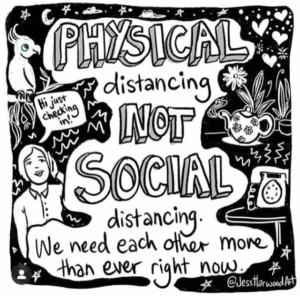 5 April: Tell Mama reports that in an incident on 18 March in Croydon, a Muslim woman was approached by a man who coughed in her face and claimed he had coronavirus. (Guardian, 5 April 2020)
5 April: Tell Mama reports that in an incident on 18 March in Croydon, a Muslim woman was approached by a man who coughed in her face and claimed he had coronavirus. (Guardian, 5 April 2020)
5 April: Journalist Sonia Sodha reports on the deluge of racist diatribes she received after she tweeted that all four doctors who had then died of coronavirus were people of colour. (Observer, 5 April 2020)
The calendar was compiled by the IRR News team with the help of Aisha Rana-Deshmukh, Laura Wormington, Jessica Pandian and Graeme Atkinson.

